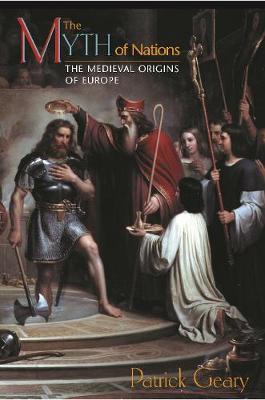Myth of Nations

Myth of Nations
Ironically, this phenomenon was kept alive not just by responsive populations--but by complicit scholars. Ultimately, Geary concludes, the actual formation of European peoples must be seen as an extended process that began in antiquity and continues in the present. The resulting image is a challenge to those who anchor contemporary antagonisms in ancient myths--to those who claim that immigration and tolerance toward minorities despoil "nationhood." As Geary shows, such ideologues--whether Le Pens who champion "the French people born with the baptism of Clovis in 496" or Milosevics who cite early Serbian history to claim rebellious regions--know their myths but not their history. The Myth of Nations will be intensely debated by all who understood that a history that does not change, that reduces the complexities of many centuries to a single, eternal moment, isn't history at all.
PRP: 281.07 Lei
Acesta este Prețul Recomandat de Producător. Prețul de vânzare al produsului este afișat mai jos.
252.96Lei
252.96Lei
281.07 LeiLivrare in 2-4 saptamani
Descrierea produsului
Ironically, this phenomenon was kept alive not just by responsive populations--but by complicit scholars. Ultimately, Geary concludes, the actual formation of European peoples must be seen as an extended process that began in antiquity and continues in the present. The resulting image is a challenge to those who anchor contemporary antagonisms in ancient myths--to those who claim that immigration and tolerance toward minorities despoil "nationhood." As Geary shows, such ideologues--whether Le Pens who champion "the French people born with the baptism of Clovis in 496" or Milosevics who cite early Serbian history to claim rebellious regions--know their myths but not their history. The Myth of Nations will be intensely debated by all who understood that a history that does not change, that reduces the complexities of many centuries to a single, eternal moment, isn't history at all.
Detaliile produsului










